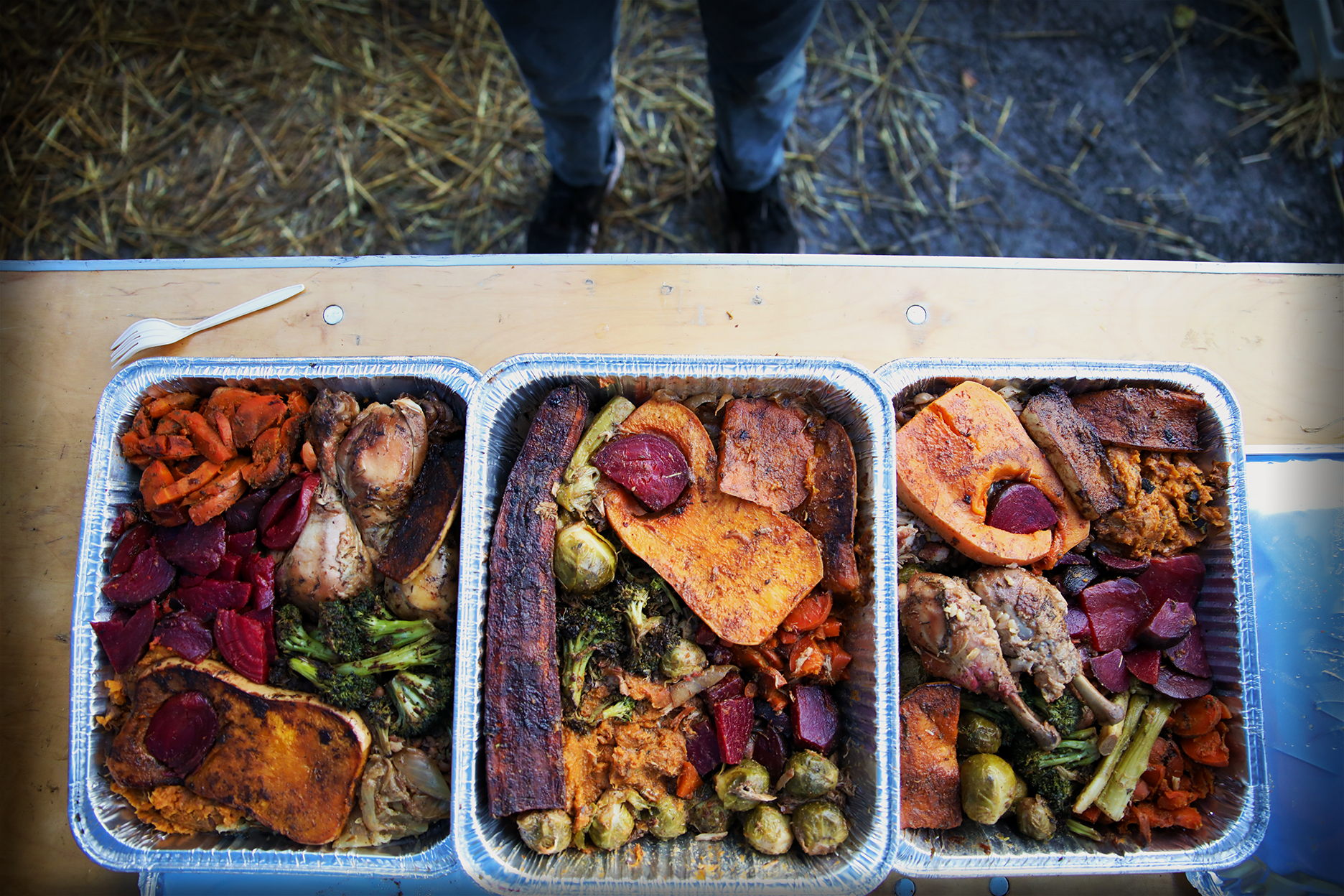
Photo courtesy of Katina Parker.
Tuesday, April 23, 2024
By Lucy Marques
In 2020, filmmaker Katina Parker founded Feed Durham, a mutual aid collective focusing on providing quality food for the Durham community. While Feed Durham began as an outgrowth of one of Parker’s annual family barbecues, the organization has now provided meals for over 165,000 people right from Parker’s front yard.
Now, Feed Durham primarily functions as a bridge between people who need the resources and local restaurants, grocery stores and caterers with excess food, Parker said.
“Nobody in Durham should be hungry or without resources, because there is an overabundance of resources in people’s stores, warehouses and homes,” she said.
Parker said she was raised to feed everyone as if they came to your house, and that it is important for her to set a standard for what is given to her low-income Black and brown counterparts.
Parker also said that people will often throw anything at people experiencing hunger and encourage them to be thankful.
“It’s dehumanizing, disrespectful, it keeps people in a low place.” she said. “Food is love, food is culture, food is also community. So you have to feed people from that place of generosity.”
Dare Coulter, a Durham artist, said Parker puts a significant level of care into the food that she makes for Feed Durham.
On one occasion, Coulter said, Parker was pushing to include brown rice into the food boxes for community members because it’s more nutritious. Another time, Parker was trying to prepare small individual containers of spices to go along with a meal.
“Feed Durham has become what it is because of how considerate Katina is in making sure that this isn’t just throwing food at people who can’t buy it themselves, to pat themselves on the back.” Coulter said. “It’s really about uplifting the people that the food is being given to.”
Parker said she sees a lot of white-led, altruistic charity models that identify themselves as mutual aid. A charity model, she said, is not mutual aid. For Parker, mutual aid is not about giving away your resources and possessions, but rather forming lasting relationships with the community.
“You don’t have to feed hundreds of thousands of people,” she said. “You can just sustain a family next door or down the street with the produce from your garden, with excess resources from your home.”
This year, Feed Durham is working with Esri’s GIS mapping software and local developers to create a user-generated mapping app called “Standing in the Gaps.” The app will allow community members to locate free and low-cost resources, including community gardens, plant stands and food pantries.
While there are several resource directories available for the community, Parker said navigating them can become a chore itself. The app will be a way for people to talk amongst themselves about what is available in the community and connect people with resources to those who need them, she said.
“A lot of times people use these directories and it gets them to the food bank, or whoever is offering the food, and they find out they don’t have the necessary paperwork, or it’s not accessible for their specific type of disability,” she said. “So we are developing an app that works all that out, helps you work all that out before you get there.”
Taylor Holenbeck, an organizer with Durham Community Fridges, has seen Parker’s work in the community for several years. He said that Parker is good at guiding people, makes community members feel welcome and always strives for excellence in her work.
“That all resounds in a level of excellence and accountability to community and responsibility to community that I feel like can be rare,” he said.
To learn more about and stay connected with Feed Durham, visit their Instagram and Facebook profiles. They accept donations through CashApp ($BullCityEats), GoFoundMe, Patreon, and a tax deductible donation page.
Edited by Lucy Smithwick
Edited by Nia Satterfield Brown